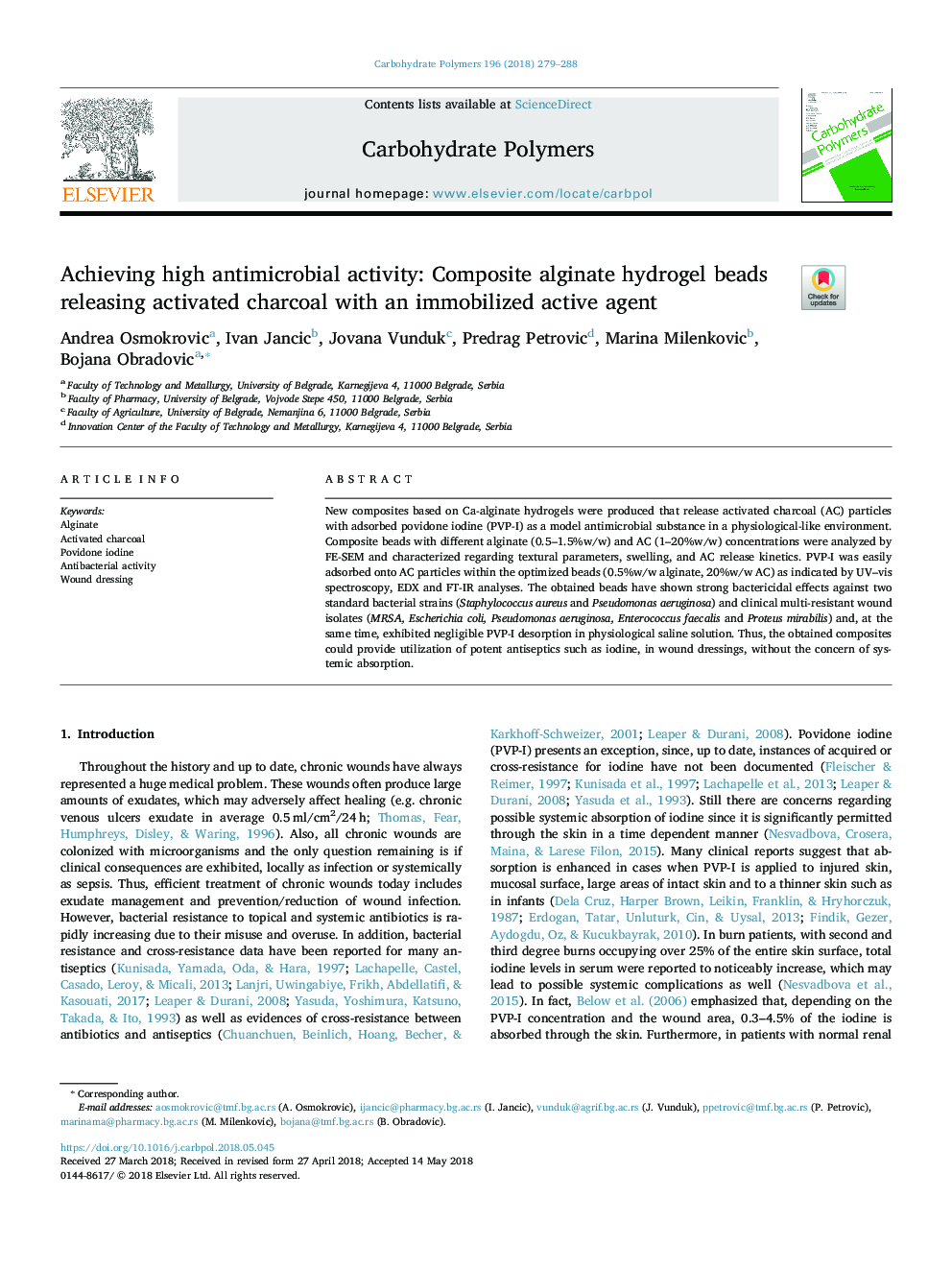| Article ID | Journal | Published Year | Pages | File Type |
|---|---|---|---|---|
| 7781818 | Carbohydrate Polymers | 2018 | 10 Pages |
Abstract
New composites based on Ca-alginate hydrogels were produced that release activated charcoal (AC) particles with adsorbed povidone iodine (PVP-I) as a model antimicrobial substance in a physiological-like environment. Composite beads with different alginate (0.5-1.5%w/w) and AC (1-20%w/w) concentrations were analyzed by FE-SEM and characterized regarding textural parameters, swelling, and AC release kinetics. PVP-I was easily adsorbed onto AC particles within the optimized beads (0.5%w/w alginate, 20%w/w AC) as indicated by UV-vis spectroscopy, EDX and FT-IR analyses. The obtained beads have shown strong bactericidal effects against two standard bacterial strains (Staphylococcus aureus and Pseudomonas aeruginosa) and clinical multi-resistant wound isolates (MRSA, Escherichia coli, Pseudomonas aeruginosa, Ðnterococcus faecalis and Proteus mirabilis) and, at the same time, exhibited negligible PVP-I desorption in physiological saline solution. Thus, the obtained composites could provide utilization of potent antiseptics such as iodine, in wound dressings, without the concern of systemic absorption.
Related Topics
Physical Sciences and Engineering
Chemistry
Organic Chemistry
Authors
Andrea Osmokrovic, Ivan Jancic, Jovana Vunduk, Predrag Petrovic, Marina Milenkovic, Bojana Obradovic,
